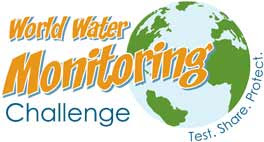From the 18th
to the 23rd of March, the 8th World Water Forum is taking
place in Brazil. World Water Day falls on the 22nd of March and,
this year it is the 25th year of it being held and will be
enthusiastically celebrated at the forum. World Water Day is coordinated by
UN-Water (the UN’s inter-agency collaboration mechanism for all freshwater
related issues) in collaboration with governments and partners. It
places an important spotlight on the importance of freshwater and advocating
for the sustainable management of freshwater resources.
History of World Water Day
This day was
first proposed at the 1992 United Nations Conference on Environment and
Development (UNCED) in Rio de Janeiro. The United Nations General Assembly
responded by designating 22 March 1993 as the first World Water Day.
Why is there a World Water Day?
Because World Water
Day is an international observance, it provides an opportunity to learn more
about water related issues, be inspired to tell others and take action to make
a difference. The engagement campaign is coordinated by one or several of the
UN-Water Members with a related mandate.
Water challenges
 |
| Source: Unknown |
Damaged ecosystems affect the quantity and quality of water available for human consumption. Today, 2.1 billion people live without safe drinking water at home; affecting their health, education and livelihoods. There are many local,
national, and global water challenges facing our planet. Water demand will
increase 55% by 2050 as a result of population growth, economic development and
changing consumption patterns as well as growing demand from manufacturing,
thermal electricity generation and domestic use. It will continue to grow
significantly over the foreseeable future. Environmental damage, coupled with
climate change, is driving the water-related crises we observe around the
world. The global water cycle is intensifying due to climate change, with
wetter regions generally becoming wetter and drier regions becoming even drier.
Urbanisation, de‐forestation,
intensification of agriculture add to these challenges. Degraded vegetation,
soil, rivers and lakes worsen floods, drought and water pollution. If we neglect
the ecosystems, it is harder to provide everyone with the water we need to
survive and thrive. Industrial and domestic demand for
water will increase much faster than agricultural demand, although agriculture
will remain the largest user overall.
2018’s theme
Each year,
UN-Water (the entity that coordinates the UN’s work on water and sanitation) sets
a theme for World Water Day corresponding to a current or future challenge. 2018’s
theme is “Nature for water”. The
theme explores how we can use nature to overcome the different water challenges
currently facing our planet.
Nature-based
solutions
Nature-based solutions have the potential to solve many of our
water challenges. More has to be done with ‘green’ infrastructure and harmonize
it with ‘grey’ infrastructure. Planting new forests, reconnecting rivers to
floodplains, and restoring wetlands will rebalance the water cycle and, subsequently,
improve human health and livelihoods.
NBS use or mimic
natural processes to enhance water availability (e.g., soil moisture retention,
groundwater recharge), improve water quality (e.g., natural and constructed
wetlands, riparian buffer strips), and reduce risks associated with water‐related
disasters and climate change (e.g., floodplain restoration, green roofs).
Currently, water
management remains heavily dominated by traditional, human‐built (i.e. ‘grey’)
infrastructure and the enormous potential for NBS remains under‐utilized. NBS
include green infrastructure that can substitute, augment, or work in parallel
with grey infrastructure in a cost‐effective manner. The goal is to find the
most appropriate blend of green and grey investments to maximize benefits and
system efficiency while minimizing costs and trade‐offs.
Importance of Sustainable Development Goal 6
This goal,
mainly to ensure availability and sustainable management of water and
sanitation for all by 2030, includes a target to halve the proportion of
untreated wastewater and increase water recycling and safe reuse. Thus, it includes
targets on protecting the natural environment and reducing pollution.
The Water Crisis and the OECD Water Governance
Principles
The Organisation
for Economic Co-operation and Development (OECD) and UN have emphasized the
need for dialogue and action on water governance — to focus on changing water
behaviours and decisions. Managing and securing access to water for all is not
only a question of money, but equally a matter of good governance. The 12 OECD
Water Governance Principles provide guidance for governments to design and
implement effective, efficient, and inclusive water policies. To date, they
have been endorsed by 170+ stakeholder groups or governments.
World Water Development Report 2018
The World Water
Development Report (WWDR 2018) Report was launched at the 8th World Water Forum
in Brasilia, Brazil, on March 19 and in conjunction with World Water Day. The
report demonstrates how nature‐based
solutions (NBS) offer a vital means of moving beyond business‐as‐usual to address
many of the world’s water challenges while simultaneously delivering additional
benefits vital to all aspects of sustainable development. Solutions inspired
and supported by nature (“nature-based solutions”) use, or mimic, natural
processes to address contemporary water management challenges, improve water security
and deliver co-benefits vital to all aspects of sustainable development. The 2018 edition
of the World Water Development Report (WWDR 2018) seeks to inform policy and
decision-makers, inside and outside the water community, about the potential of
nature-based solutions (NBS) to address contemporary water management
challenges across all sectors, and particularly regarding water for
agriculture, sustainable cities, disaster risk reduction and improving water
quality.
The World Water Development Report can be
downloaded here: http://www.unwater.org/publications/world-water-development-report-2018/
Here are two videos with regards to World Water Day:
We often take
water for granted. Thus, we must always remember that every day should be World
Water Day.
References


















